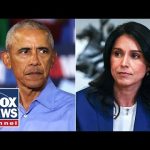Ten Americans, including a Navy SEAL veteran, have returned home after being released from custody in Venezuela, marking a significant moment for U.S. foreign relations. The U.S. State Department orchestrated this emotional homecoming by negotiating a prisoner swap that saw the ten wrongfully detained Americans exchanged for hundreds of Venezuelan nationals. The catch? Many of those nationals had already been deported to El Salvador earlier in the year.
This exchange has generated praise from many, especially among those who closely follow U.S. hostage policy. It was a historic moment in international relations, showcasing not only the resilience of American citizens but also the strategic maneuvering of U.S. officials. The deal featured very few concessions, which is a refreshing change from past negotiations where money or political favors often changed hands. This time, it appears that Venezuelan President Nicolás Maduro garnered little from the swap, leading some to suggest that it highlights his waning power in the international arena.
The reasons for the detention of these Americans vary, but many were captured before strict policies aimed at protecting U.S. citizens were put into place. Venezuela, a treasure trove of natural resources, has sadly fallen under the grasp of socialist policies that have driven the nation into turmoil. This economic decline has made Americans in the country vulnerable, as the Venezuelan government often uses their detainment as bargaining chips. Who wouldn’t want to use valuable hostages when your nation is struggling? Talk about serious high-stakes poker!
Despite the dark clouds hovering over Venezuela, this prisoner swap has been interpreted favorably in many quarters. The negotiation is seen as a win for the United States, especially since former administrations have been marked by concessions that may not have served national interests. In this situation, hosting suspected criminals in exchange for the freedom of ten innocent Americans seems like a fair deal—take two hundred and fifty so-called “bad hombres” for a handful of good citizens without breaking a sweat. In short, Americans across the nation can take a deep breath of relief as families are reunited.
Moreover, this deal may have served to lend Maduro a touch of legitimacy he desperately seeks. The Venezuelan leader, who has faced significant international backlash over his conduct and previous elections, looks to portray himself as someone working with the U.S. government. This reflects how desperate Maduro has become as he grapples with internal issues and international isolation. Meanwhile, it embodies a glimmer of hope for future U.S. negotiations, not only regarding hostage situations but also on broader terms of international cooperation and strategy going forward.
As joy reigns for those ten families, the world watches with bated breath as discussions emerge for further negotiations. In a related story, U.S. officials are reportedly working to secure additional releases of hostages still held in Gaza, demonstrating the importance and urgency of diplomatic conversations in today’s politically charged environment. All things considered, this successful exchange serves as a reminder that proactive negotiating can lead to favorable outcomes for American citizens abroad.




